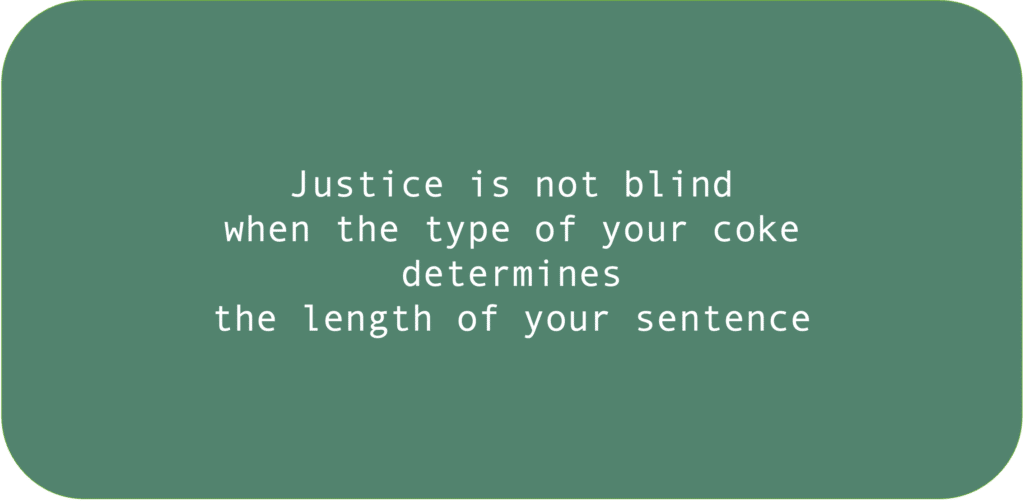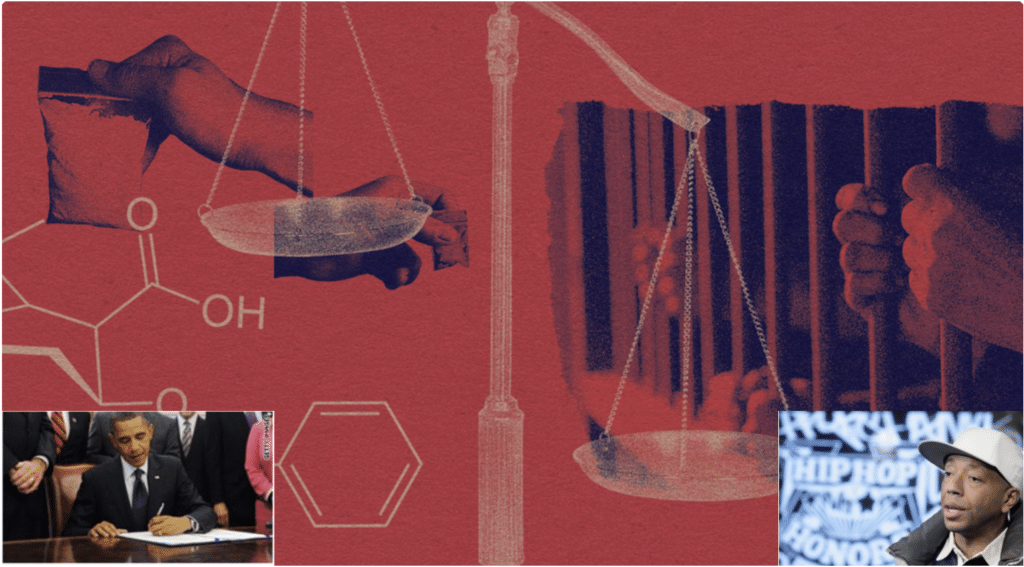
A tale of two drugs
For over 25 years, many politicians, including the late Senator Ted Kennedy, fought to redress the imbalance between federally mandated sentences for possession of crack cocaine and the powder form of the drug.
For example, a person convicted of possessing five grams of crack cocaine got the same mandatory sentence as one convicted of possessing 500 grams of powder cocaine.
Therefore, it’s ironic that rap mogul Russell Simmons has become the standard bearer for this fight. I criticized politicians for forfeiting this role to him in “Black Political Leadership Is Dead”, April 26, 2005.
Misguided legislation to fight drugs
In 1986, the prevailing view was that crack cocaine, being cheap, was becoming epidemic, especially with its association with inner-city violence. Yet, stuffing federal prisons with people convicted for possessing small amounts of crack cocaine was not only grossly unfair but reeked of racism.
Human Rights Watch’s analysis of prison admission data for 2003 revealed that relative to population, Blacks are 10.1 times more likely than Whites to be sent to prison for drug offenses.
(Fellner, Jamie, “Decades of Disparity: Drug Arrests and Race in the United States,” Human Rights Watch, March 2009)

Then there are these even darker statistics:
Blacks comprise 62.7% and whites 36.7% of all drug offenders admitted to state prison, despite federal surveys showing that there are five times more white drug users than black. Relative to population, black men are admitted to state prison on drug charges at a rate 13.4 times greater than that of white men. Consequently, blacks are incarcerated for all offenses at 8.2 times the rate of whites. One in every 20 black men over 18 in the United States is in state or federal prison, compared to one in 180 white men.
(Human Rights Watch, “Racial Disparities in the War on Drugs,” 2000)
Not to mention the long-term social and economic impact disparate sentences for drug offenses have had not just on black families but life in the inner cities of America.
Obama’s reform: one small step for justice
Obama followed through on his promise to bridge the gap in sentencing for drug offenses, declaring that the gap “cannot be justified and should be eliminated.” The bill he signed eliminates the five-year mandatory minimum for first-time possession of crack, but the disparity between crack and powder cocaine sentencing remains at 18:1.
This day was long in coming. [This bill will] go a long way toward ensuring that our sentencing laws are tough, consistent, and fair.
(Attorney General Eric Holder, CNN, August 3, 2010)
A missed opportunity for justice
To gain Republican votes, Democrats agreed not to make this new law retroactive. But, if the law was so unjust, why shouldn’t those affected by it benefit from its repeal?
Not to mention that far too many Blacks are serving years for crack possession under old guidelines. Releasing them would also address prison overcrowding, which would be more justifiable than releasing celebrity convicts like Lindsay Lohan early due to “overcrowding.”
Clearly, in so many ways, America’s declared war on drugs has been a misguided farce. For example, targeting drug imports is like bailing out a sinking ship with a spoon. Instead, lobbying to decriminalize all drug use is the only war worth fighting.
In the meantime, eliminating the gross disparity in sentencing for drug offenses is certainly a battle worth fighting.
Leave a Reply
You must be logged in to post a comment.